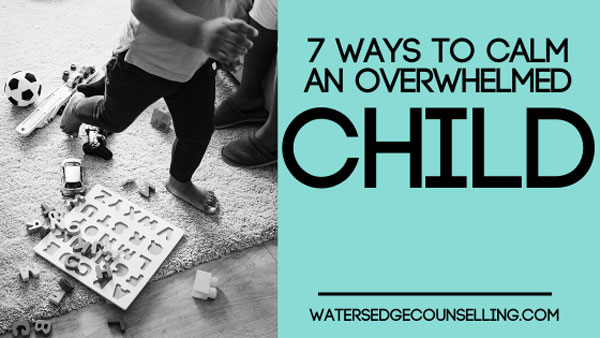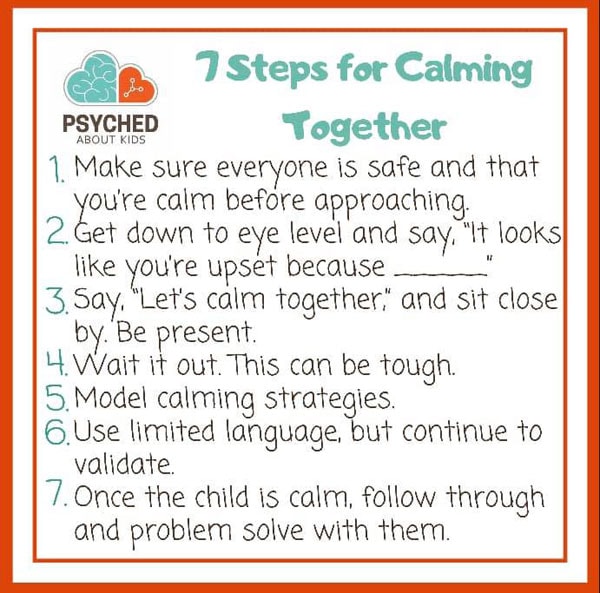
When a child throws a tantrum in public, everyone knows about it. And if you’ve had any experience with kids, chances are you feel sorry for the parent or guardian. When a child is overwhelmed, it can seem impossible to calm them. And when it’s happening in a public place, we often experience shame, embarrassment or frustration that we can’t ‘control’ our child.
But how often do these feelings of shame (or mere exhaustion) overflow onto our child and exacerbate the situation? Whether you use a ‘tough love’ approach, try to ignore them until it passes, or give them whatever they want to keep the peace, it’s not easy to calm an overwhelmed child.
So why do kids ‘act out’? A tantrum, or heightened behaviour, is actually their body’s way of saying “I can’t cope with this anymore”. Tears, anger or aggressive behaviour are the breaking point for a child who can’t express how they feel yet.
Here are some common reasons kids have tantrums or get overwhelmed:
- They have been overstimulated all day (socially, or with sound or vision) and their body is begging for rest.
- They sense the discomfort or anxiety of their adult carer, and feel insecure about their relationship. Tears or a tantrum show they can’t fully understand what is going on, and may indicate they desperately need affirmation.
- They feel injustice or fear at how they are being treated and don’t know how to state this.
- They feel overwhelmed with pressure, responsibilities or expectations (which may or may not be clear) so their body ‘throws in the towel’ and begs for help.
- They are out of routine, and need clear boundaries around sleep, food, school/playschool, social activities and quality time with their guardian.
- They have been traumatised in the past and are triggered by a familiar person, situation, environment or word. Therefore they act out to defend themselves, run away, or shut down and stop communicating.
- They are sick and don’t know how to ask for help.
- They are trying to figure out if they can trust you.
- They feel insecure about their future and lack stability.
- They don’t get what they want, and they don’t know how to express their disappointment in a healthy way.
Kids are complex, just like adults. In fact, you’ve probably seen more than a handful of adults react the same ways as kids in troubling situations! Kids tend to get shamed a lot more for these responses though, which just heightens their behaviour, or damages your relationship with them. Further more, kids are kids. As parents, it’s our job to teach them boundaries and model appropriate ways to deal with emotions. But they’re not always going to get it right, so we can’t expect them to be perfect.
So how do you calm a child who is throwing a tantrum or seemingly ‘over-reacting’? The team at Psyched About Kids have created a seven-step approach to calming a child. We love this guide, because it involves the parent and child working together. It is designed for kids aged 2-6, but we think it’s useful for people of all ages.
When your child is acting out begin at step 1. There’s no one size fits all approach to parenting, so you may have to alter some of these steps slightly to benefit your child. The main goal is that they feel seen, heard and supported – this is shown by getting down to their level, waiting out the episode, speaking with them, and modelling calming strategies. A calming strategy can be anything from practicing deep breaths, to stroking a sensory toy (any toy with an interesting texture or shape that calms them as they touch it).
This guide is not about telling kids it’s okay to act out, but understanding why they do, so you can work out strategies to reduce tantrums in the future. As they get older, this will teach them how to identify their emotions, and how to express them healthily.

Does your child throw tantrums or act out? Would you to understand how to calm them? Here’s what you need to do: Contact Colleen on 0434 337 245, Duncan on 0434 331 243 or Rachel on 0442 177 193 for a FREE 10 minute consultation on how we can best help you or book online.
Leave a Reply